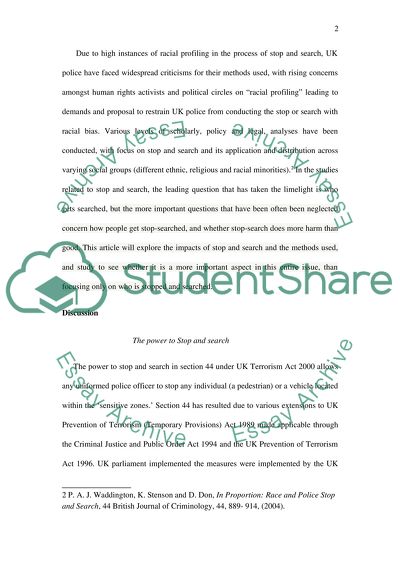Cite this document
(“The Question of Who Gets Stop-searched by the Police has Dominated Essay”, n.d.)
The Question of Who Gets Stop-searched by the Police has Dominated Essay. Retrieved from https://studentshare.org/law/1440256-the-question-of-who-gets-stop-searched-by-the
The Question of Who Gets Stop-searched by the Police has Dominated Essay. Retrieved from https://studentshare.org/law/1440256-the-question-of-who-gets-stop-searched-by-the
(The Question of Who Gets Stop-Searched by the Police Has Dominated Essay)
The Question of Who Gets Stop-Searched by the Police Has Dominated Essay. https://studentshare.org/law/1440256-the-question-of-who-gets-stop-searched-by-the.
The Question of Who Gets Stop-Searched by the Police Has Dominated Essay. https://studentshare.org/law/1440256-the-question-of-who-gets-stop-searched-by-the.
“The Question of Who Gets Stop-Searched by the Police Has Dominated Essay”, n.d. https://studentshare.org/law/1440256-the-question-of-who-gets-stop-searched-by-the.


